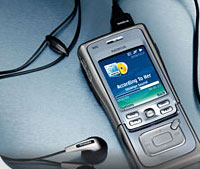 Mobile phones with built in MP3 music players are proving a massive hit with consumers, far outstripping sales of dedicated music players, say Nokia.
Mobile phones with built in MP3 music players are proving a massive hit with consumers, far outstripping sales of dedicated music players, say Nokia.
Speaking to Reuters, Nokia’s multimedia unit director, Tommi Mustonen, said the mobile giant aimed to shift 80 million music devices this year, getting on for double last year’s tally of 46.5 million.
“The technology is completely ready, and the change in consumers’ habits has started. The best evidence is our sales number. We are selling huge amounts,” he added.
Nokia’s sales figures certainly dwarf those of Apple, who sold 8.7 million iPods in the last quarter – a high enough figure to keep them at the top of the dedicated music player charts, but still way behind music phones.
Although two out of three consumers with suitable equipped phones are already using them to play music, Nokia insists that Apple is not a competitor (well, not until their highly anticipated iPhone hits the shops).
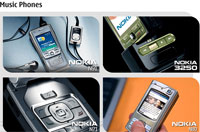 “The comparison with iPod is wrong; it is a single purpose device, and it is not connected,” Mustonen said, adding that he believes that Nokia’s current rivals are, “companies which make multimedia computers.”
“The comparison with iPod is wrong; it is a single purpose device, and it is not connected,” Mustonen said, adding that he believes that Nokia’s current rivals are, “companies which make multimedia computers.”
One of their rivals is most certainly Sony Ericsson, currently the world’s fourth-largest handset maker and feeling chuffed with itself after flogging 15 million Walkman music-playing handsets in its first year.
The overall European mobile phone music download market is expanding faster than Mr Creosote at a dinner table too, with Forrester Research predicting that the market is to grow to 674 million euros ($857.5 million) in 2011.
 UK rail operator GNER (Great North Eastern Railways) has now completed the installation of Wi-Fi on all is trains, with the company claiming that they now own the world’s largest Wi-Fi fleet.
UK rail operator GNER (Great North Eastern Railways) has now completed the installation of Wi-Fi on all is trains, with the company claiming that they now own the world’s largest Wi-Fi fleet. GNER reckons it will recoup the cost of installing its Wi-Fi service through increased passenger numbers, with the company confident that they’ll be able to tempt car users onto the trains from major metropolitan areas like Leeds, Newcastle and Darlington.
GNER reckons it will recoup the cost of installing its Wi-Fi service through increased passenger numbers, with the company confident that they’ll be able to tempt car users onto the trains from major metropolitan areas like Leeds, Newcastle and Darlington.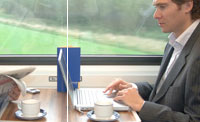 One thing Metcalfe may not be so encouraged by is the rather parlous state of GNER’s parent company, the Caribbean-based Sea Containers.
One thing Metcalfe may not be so encouraged by is the rather parlous state of GNER’s parent company, the Caribbean-based Sea Containers.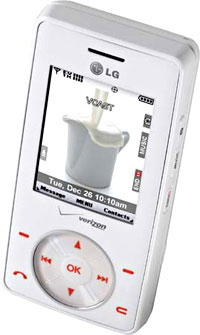 After the success of LG’s Chocolate slider phone (aka the LG KG800), the company have released a new White Chocolate version.
After the success of LG’s Chocolate slider phone (aka the LG KG800), the company have released a new White Chocolate version.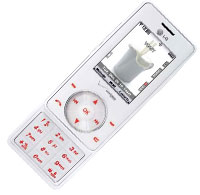 Music playback support comes in the shape of WMA and MP3 support with micro-SD memory expansion up to 2GB.
Music playback support comes in the shape of WMA and MP3 support with micro-SD memory expansion up to 2GB.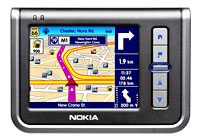 Nokia has announced its first dedicated personal navigation device covering all of Europe-land, the Nokia 330 Auto Navigation.
Nokia has announced its first dedicated personal navigation device covering all of Europe-land, the Nokia 330 Auto Navigation.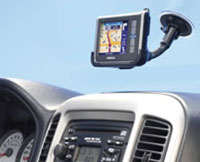 And now some corporate guff
And now some corporate guff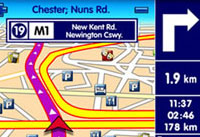 “Finding your way across Europe is simple with this comprehensive navigation package, including an integrated GPS receiver and European maps,” he added.
“Finding your way across Europe is simple with this comprehensive navigation package, including an integrated GPS receiver and European maps,” he added.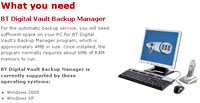 BT has launched a ‘virtual vault’ offering a secure online location for broadband users to safely stash personal files.
BT has launched a ‘virtual vault’ offering a secure online location for broadband users to safely stash personal files.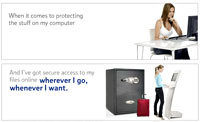 The manager then synchronises the data with the copy stored in the Digital Vault, with no user intervention needed.
The manager then synchronises the data with the copy stored in the Digital Vault, with no user intervention needed.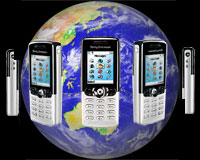 Global mobile shipments are set to hit one billion this year for the first time.
Global mobile shipments are set to hit one billion this year for the first time.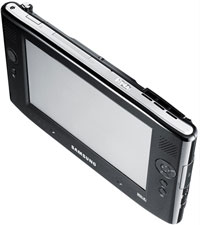 With ne’er a parp on their usual raucous PR trumpet, Samsung have quietly shuffled out two updates to its Q1 ultra mobile Origami PC range.
With ne’er a parp on their usual raucous PR trumpet, Samsung have quietly shuffled out two updates to its Q1 ultra mobile Origami PC range.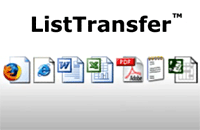 Weighing 1.7 pounds, it’s light enough to carry around for a few hours which is a good thing because that’s when the battery will conk out (battery life is measured at a rather disappointing three hours.)
Weighing 1.7 pounds, it’s light enough to carry around for a few hours which is a good thing because that’s when the battery will conk out (battery life is measured at a rather disappointing three hours.)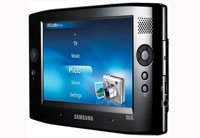 The other new model – the Q1b – uses a cheaper Via Technologies’ C7 1GHz processor, and is fitted with a 40 GB hard disk and 512 MB RAM.
The other new model – the Q1b – uses a cheaper Via Technologies’ C7 1GHz processor, and is fitted with a 40 GB hard disk and 512 MB RAM.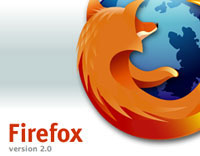 The final version of the Firefox 2.0 browser is expected to be released into the wild today.
The final version of the Firefox 2.0 browser is expected to be released into the wild today.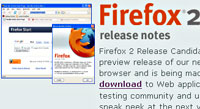 “If your browser needs a restart or the OS asks you to reboot, losing all of those web pages and content is pretty disruptive,” commented Mozilla VP of products Christopher Beard. Ain’t that the truth, Chris!
“If your browser needs a restart or the OS asks you to reboot, losing all of those web pages and content is pretty disruptive,” commented Mozilla VP of products Christopher Beard. Ain’t that the truth, Chris!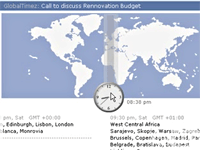 Set for a beta launch this month, Scrybe looks to be a ground-breaking online organiser if it lives up to the claims made in the promotional video posted on YouTube.
Set for a beta launch this month, Scrybe looks to be a ground-breaking online organiser if it lives up to the claims made in the promotional video posted on YouTube.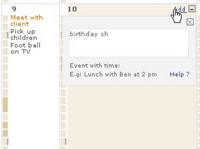 Web snippets – complete with bookmarks, graphics and text formatting – can be copied into a categorised Thought Pad interface and integrated with calendar events and To Dos, with multi page documents browsed via a sleek, pop up graphic navigation pane.
Web snippets – complete with bookmarks, graphics and text formatting – can be copied into a categorised Thought Pad interface and integrated with calendar events and To Dos, with multi page documents browsed via a sleek, pop up graphic navigation pane.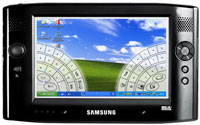 What we think so far
What we think so far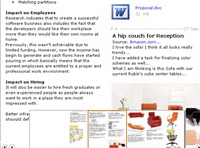 Although the online demo looks amazing, we’ve seen far too many slick presentations be followed up by a hideous kludge of a program, so we’ve signed up to the beta trial and will hopefully be able to give you our hands-on verdict soon.
Although the online demo looks amazing, we’ve seen far too many slick presentations be followed up by a hideous kludge of a program, so we’ve signed up to the beta trial and will hopefully be able to give you our hands-on verdict soon. UK Internet shoppers are spending up to 50 per cent more on electrical goods than they would on the High Street, according to new research.
UK Internet shoppers are spending up to 50 per cent more on electrical goods than they would on the High Street, according to new research.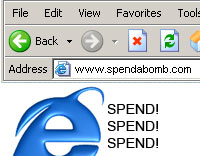 Not surprisingly, popular consumer products like hard drives and mp3 players have been big movers, but GFK also noted that consumers are increasingly shelling out for more diverse products online, such as bread makers and dishwashers.
Not surprisingly, popular consumer products like hard drives and mp3 players have been big movers, but GFK also noted that consumers are increasingly shelling out for more diverse products online, such as bread makers and dishwashers.